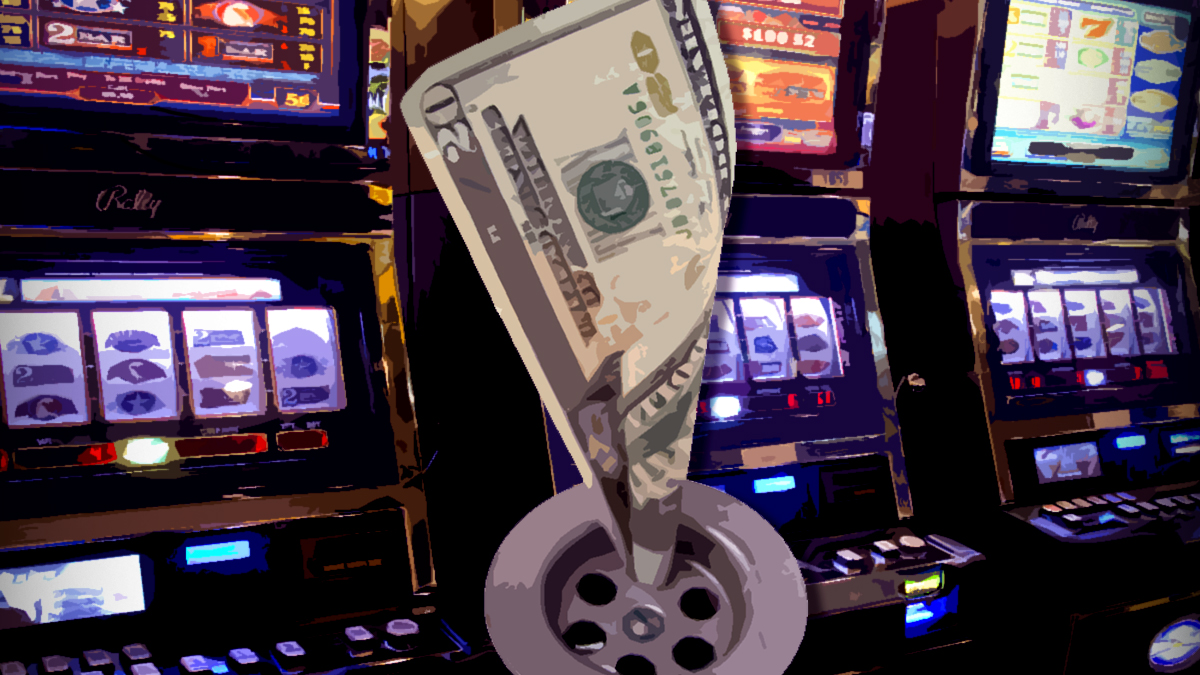Taxes On Slot Machine Winnings


$1,200 or more at bingo or on a slot machine; $1,500 or more at keno; $5,000 or more in a poker tournament. Table games in a casino, such as blackjack, roulette, baccarat, or craps are exempt from the W-2G rule. This doesn’t mean you don’t have to claim the income and pay taxes on it if your winnings aren’t enough to warrant the tax form. When it comes to slot machine winnings, there are no exceptions. If you won cash money or prizes (such as a car or a vacation), you are obligated to contact the IRS. A winning player will need to file the winnings under ‘other income’ by filling out the 1040 form. While temporary regulations had boosted the reporting thresholds for winnings from bingo games and slot machines to $1,200 and $1,500 for keno games, proposals would have lowered these amounts. Regular withholding of 25% on cash payments where the winnings minus the wager exceed $5,000; or 33.33% for certain noncash winnings such as a car (this applies to non-state conducted lotteries, sweepstakes, and wagering pools, but not to keno, bingo or slot machine winnings). The winnings are: o at least $600 and at least 300 times the wager, or o at least $1,200 from bingo or slot machines, or o $1,500 from Keno, or o more than $5,000 from a poker tournament. The following table summarizes the rules for income tax withholding on gambling winnings.
Do I Have to Report All Winnings? All gambling winnings received from slot machines are subject to. Gross Income Tax. For example, winnings from casino betting and wagering, New Jersey Lottery winnings on prize amounts exceeding $10,000, winnings from slot machines, raffles, bingo games, etc., are all taxable income. Nonresidents may only offset gambling winnings from New.
The IRS isn’t leaving gambling reporting to chance. It has issued new final regulations clarifying and expanding the rules for payors of slot, bingo and keno winnings. Most notably, in response to an outcry from the gambling industry, higher ..
Taxes On Slot Machine Winnings
The IRS isn’t leaving gambling reporting to chance. It has issued new final regulations clarifying and expanding the rules for payors of slot, bingo and keno winnings. Most notably, in response to an outcry from the gambling industry, higher thresholds for reporting responsibilities were retained (IRS Reg. 1. Lock zone slot machine. 6401-10, 12/29/16).
“Commentators overwhelmingly opposed the idea of reducing these reporting thresholds. Payors opposed lowering the thresholds because it would result in more reporting, which would increase compliance burdens for the industry,” said the IRS in the regulations. “In fact, many commentators suggested that rather than reducing the current thresholds, they should be increased to account for inflation. These final regulations do not change the existing reporting thresholds for bingo, keno, and slot machine play.”
For taxpayers, gambling winnings are treated as taxable income on federal income tax returns, but the tax may be offset by losses up to the amount of the winnings. For example, if you win $5,000 during the year and incur losses of $4,500 in the same year, you owe tax on only $500. The losses are reported on Schedule A, but aren’t subject to the usual 2%-of-AGI floor for miscellaneous deductions.
Taxes On Casino Winnings Calculator
For businesses, information reporting is required for payments of $600 or more to a taxpayer during the year. While temporary regulations had boosted the reporting thresholds for winnings from bingo games and slot machines to $1,200 and $1,500 for keno games, proposals would have lowered these amounts back to $600.
The information is reported on Form W-2G, “Certain Gambling Winnings,” which must be filed by February 28 of the following year; March 31, if filed electronically.
Now the new regulations hold the line on the reporting thresholds for bingo, slots and keno games. The regs also retained the rules, with minor modifications, on identifying information that must be provided by gamblers. In addition, they adopted an “aggregate reporting” rule, with winnings for a single gambling session being allowed as an alternative to reporting each win that exceeds the required threshold. A single session is defined as the time between a gambler placing a wager on a certain game and completing the last wager on the game before the end of the same calendar day.
The IRS also agreed to allow gambling institutions to use “gaming days” instead of calendar days for reporting periods if its use is uniform. Gaming days are generally used for other accounting purposes.
Finally, the new final regulations did not include proposed rules that applied to electronically tracked systems for slot machines. The proposed regulations required reporting for winnings at least $1,200 within a calendar day session. However, the casino industry successfully argued that the technology would not support this and that it would “chill customer use.” Count this as a win for the casinos.